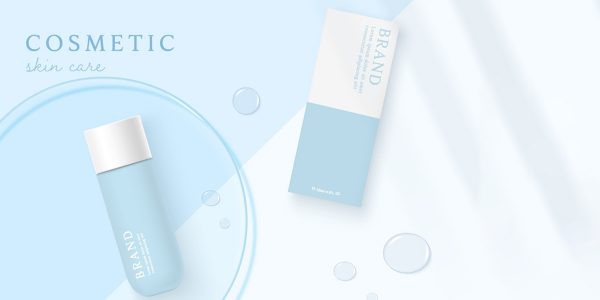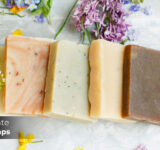- 17/02/2024
- Rohit Mishra
We are in a world where skincare industry trends are evolving at a phenomenal speed reflecting the ever-changing desires of the new urban consumers. The altering perception of modern consumers and their choice of holistic wellness rather than sticking to old monopolistic labels compel new skincare brands to study and explore the multitude of opportunities that these growing skincare market trends hint at.

Here we deeply understand the top 5 trends in skincare industry and how new entrepreneurs can make the most of them.
Understanding Skincare Market Trends
With the increasing cost of living and exorbitant prices of salon services, customers are demanding high-quality skincare products, formulated with active ingredients, meet their evolving skincare needs, and show great performance. In a nutshell, consumers want more at less. They look forward to a single product that addresses their multiple skincare needs without having them invest in expensive or premium brands.
Keeping up with consumers’ evolving expectations in volatile skincare industry trends isn’t easy. Still, if you are launching a new skincare brand, you cannot ignore the skin care market trends that set the pace of your business.
5 Trends In Skincare Industry For New Entrepreneurs
If you are a new entrepreneur venturing into the skincare industry you cannot take your eyes off these 5 hottest skincare industry trends that will decide the future of your business.
1. Clean & Green Beauty

An increasing environmental awareness draws shoppers closer to the clean and green beauty movement. Today consumers are searching for skincare products that emphasize cruelty-free practices, use organic, plant-based ingredients, and come in eco-friendly packaging.
Transparency in ingredients and avoiding lab testing on animals are some ways in skincare market trends to win consumer confidence and ensure that your skincare brand resonates with its ideas and philosophies.
Similarly, consumers are attracted by recyclable packaging options like paper and bamboo packaging that assure them that they are not harming the environment by adding to the toxic and non-recyclable burden on planet Earth.
2. Personalization & Customization

The skincare industry trends includes consumers with diverse needs because of the varied skin tones and textures. Different skin tones have different skin problems and concerns that need specific care and treatment.
With growing awareness about skin quality, consumers look for bespoke and customized products that meet their specific requirements rather than single-purpose generic products that fail to show results.
The modern skincare market trends cater effectively to skin types like oily, dry, normal, and acne, serving them with products manufactured using deeply researched ingredients benefitting each skin type.
3. Digitalization & E-Commerce Dominance

With the introduction of digitalization and the dominance of e-commerce platforms, marketing and selling skincare products is both easy and efficient. New entrepreneurs have a wide canvas in the form of social media and e-commerce sites like Amazon, Flipkart, and Nykaa to launch, showcase, and sell their skincare products with the ease of selling through digital payments.
Collaborating with social media influencers who promote skincare products and share feedback stories helps to win consumer confidence and connect with them instantly. Be prudent when connecting with social media groups to showcase your skin care products and pitch the target audience for better results.
4. Innovative Ingredients & Technology

Biotech beauty is giving way to old classics, and we see a new range of skincare products that are formulated using innovative ingredients flooding the skin care market trends. Using peptides, antioxidants, and enzymes and focusing on microbiomes is revolutionising the skincare industry trends.
Deep research and integration of science-based ingredients and innovative technology pave the way for sustainable and improvised skincare products.
With increased focus on skin hydration and improving skin quality rather than using makeup to improve appearance, skincare companies are launching products that hydrate and replenish the skin using pre- and probiotics and formulas that deliver exemplary results.
5. Inclusive Beauty & Wellness

Today’s skincare industry trends aim to help consumers find their inner beauty irrespective of skin tone, complexion, and cultural background. It caters to a large audience base, all from diverse backgrounds and different types of skin tones.
The idea of modern trends in skincare industry is to inter-weave the bond between skincare and wellness, where everyone is comfortable in their skin and uses bespoke products designed to enhance their beauty rather than replicate others.
No wonder the skincare market trends have witnessed the introduction of the most diverse products that help consumers pamper their skin and celebrate the idea of self-love. Undoubtedly consumer voice and innovative technology truly echo in the skincare industry trends and they are here to stay for long.
How Can Business Respond To Evolving Skincare Industry Trends?
Knowing skincare industry trends is one thing; using them to harness your business is another, which is exactly what we intend to tell you here.
1. Continuous Market Research

Good market research is key to understanding changing trends in skincare industry and producing new products accordingly. It analyses the skincare market trends to study consumer behaviour and demands, know which products men and women prefer buying, their preferred price range, and the ingredients they look for in their skincare products.
2. Agility In Product Development

Sticking to rigid product formulations can stagnate sales and cause a loss of customer base. Evolving your products with the changing skincare market trends, technologies, and innovative product formulations ensures that you introduce skincare products that consumers want to buy into the market.
Bo International helps new startups introduce new skincare products with supreme quality raw ingredients that are both sustainable and skin-friendly.
3. Customer Engagement & Feedback

Involve customers in your business as consumers and participants, allowing them to communicate their suggestions and feedback about your skincare products freely. Carry out surveys, encourage them to share feedback stories or drop comments sharing their experiences. This helps in improvising your products while attracting new customers through word-of-mouth publicity.
4. Sustainability Integration

Growing environmental awareness in skincare market trends encourages customers to opt for skincare products that align with their commitment to using eco-friendly products at home or for personal use. Using sustainable ingredients like the ones sourced from Bo International and choosing eco-friendly recyclable packaging options assure customers that your business and their values are on the same wavelength.
5. Collaborations & Partnerships

Making the most of social media platforms like Facebook, Instagram, and YouTube enter into collaborations and promotional partnerships with social media influencers who are playing a great role in changing consumer mindsets. Allow them to promote your products in their videos and reels, explaining the ingredients, composition, and benefits of using the skincare range.
Businesses can achieve great success by understanding and incorporating skincare industry trends, ensuring that they are always open to new ideas and evolving changes that consumers demand.
Conclusion
In dynamic skincare industry trends, businesses must understand the skincare market trends, improvise their product formulations, perceive consumer skin problems, and offer solutions to their skin issues by developing sustainable and pocket-friendly products.
Understanding the importance of this change, Bo International offers you the choice to outsource your skincare manufacturing process and be assured of getting the best quality skincare products that adhere to the highest quality standards and keep up with the sprouting skincare industry trends.




